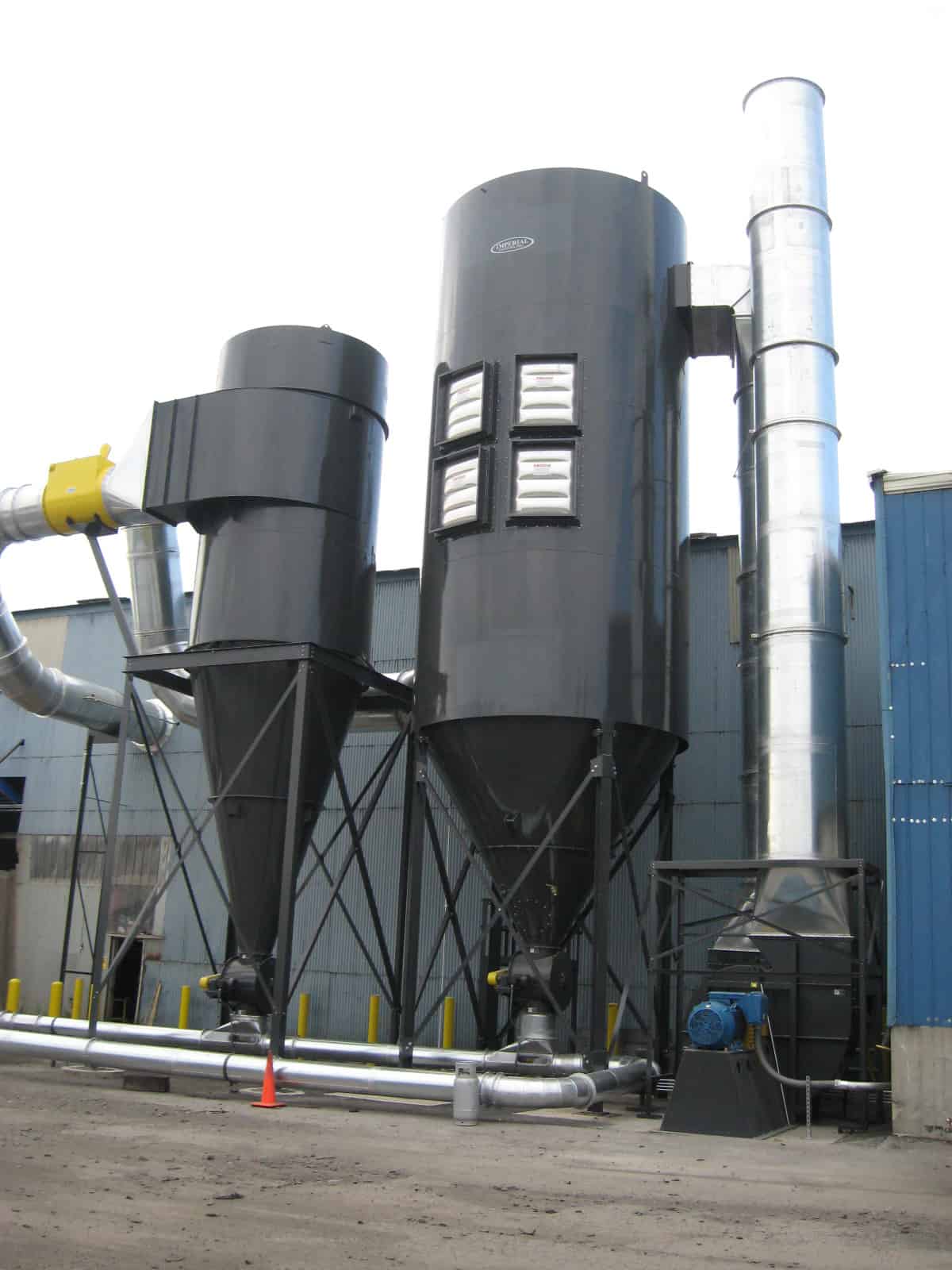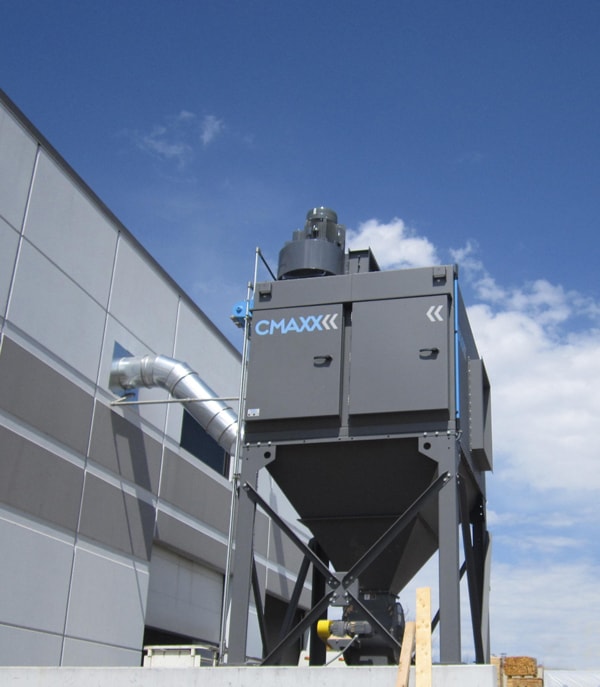Industrial Air Purification Systems: The Key To A Healthier Workplace
In today's industrial landscape, the importance of air purification cannot be overstated. Industrial air purification systems are essential for maintaining clean and safe environments, protecting both employees and equipment from harmful contaminants. These systems are designed to eliminate pollutants, dust, and other hazardous particles that can compromise air quality, leading to health risks and operational inefficiencies.
As industries continue to grow and evolve, so do the challenges posed by air pollution. Whether it's manufacturing plants, food processing facilities, or chemical production units, the need for effective air purification systems is becoming increasingly critical. By investing in high-quality industrial air purification systems, businesses can ensure compliance with safety regulations and enhance overall productivity.
This article delves into the world of industrial air purification systems, exploring their benefits, types, and implementation strategies. We will also discuss the latest advancements in technology and how these systems contribute to creating healthier and more sustainable work environments. Let's dive in!
Read also:Zac Efron Jaw Before And After A Comprehensive Transformation Guide
Table of Contents:
- Introduction to Industrial Air Purification Systems
- Benefits of Industrial Air Purification Systems
- Types of Industrial Air Purification Systems
- Advanced Technologies in Air Purification
- Applications Across Industries
- Compliance with Regulations
- Maintenance and Optimization
- Cost Considerations
- Future Trends in Air Purification
- Conclusion
Introduction to Industrial Air Purification Systems
Industrial air purification systems are sophisticated solutions designed to address the unique challenges of air quality in industrial settings. These systems are engineered to filter out harmful particles, gases, and odors, ensuring that the air within facilities remains clean and breathable. The primary goal of these systems is to safeguard the health of workers while preserving the integrity of equipment and processes.
Historically, air purification systems have evolved significantly, moving from basic filtration methods to advanced technologies that can handle complex contaminants. This evolution has been driven by increasing awareness of the health risks associated with poor air quality and stricter regulatory requirements. As a result, modern industrial air purification systems are now capable of delivering exceptional performance across a wide range of industries.
In this section, we will explore the fundamental principles behind these systems, their components, and how they contribute to creating safer working environments. Understanding the basics of industrial air purification systems is crucial for anyone looking to implement or improve air quality solutions in their facilities.
Benefits of Industrial Air Purification Systems
Improved Worker Health
One of the most significant benefits of industrial air purification systems is their ability to improve worker health. By removing harmful particles and pollutants from the air, these systems reduce the risk of respiratory diseases and other health issues. Employees working in environments with clean air are less likely to experience symptoms such as coughing, sneezing, and fatigue, leading to increased productivity and job satisfaction.
Enhanced Equipment Longevity
Industrial air purification systems also play a vital role in extending the lifespan of equipment. Dust, debris, and other contaminants can cause significant damage to machinery, leading to costly repairs and downtime. By filtering out these particles, air purification systems help maintain the optimal performance of equipment, reducing maintenance costs and improving operational efficiency.
Read also:Girls Gone Wild The Untold Story
Environmental Impact
Another important benefit of these systems is their contribution to environmental sustainability. By minimizing the release of pollutants into the atmosphere, industrial air purification systems help reduce the overall environmental impact of industrial activities. This aligns with global efforts to combat climate change and promote cleaner production processes.
Types of Industrial Air Purification Systems
There are several types of industrial air purification systems, each designed to address specific air quality challenges. The choice of system depends on factors such as the type of contaminants present, the size of the facility, and the specific requirements of the industry. Below are some of the most common types:
- HEPA Filtration Systems: These systems use high-efficiency particulate air (HEPA) filters to capture tiny particles, making them ideal for environments where fine dust and allergens are prevalent.
- Electrostatic Precipitators: These systems use electric charges to remove particles from the air, making them effective for capturing larger particles such as smoke and soot.
- Activated Carbon Filters: Designed to eliminate odors and volatile organic compounds (VOCs), these filters are commonly used in industries where air quality is affected by chemical emissions.
- Ultraviolet (UV) Air Purifiers: These systems use UV light to kill bacteria, viruses, and other microorganisms, providing an additional layer of protection against biological contaminants.
Advanced Technologies in Air Purification
The field of air purification is constantly advancing, with new technologies emerging to address the growing demands of modern industries. Some of the latest innovations include:
Smart Air Purification Systems
These systems are equipped with sensors and IoT capabilities, allowing them to monitor air quality in real-time and adjust their performance accordingly. Smart air purification systems can provide valuable insights into air quality trends, helping businesses make informed decisions about their environmental management strategies.
Nano-Filtration Technology
Nano-filtration technology uses advanced materials to capture particles at the nanoscale level, offering superior filtration efficiency. This technology is particularly effective in environments where ultra-fine particles are a concern, such as semiconductor manufacturing and pharmaceutical production.
Applications Across Industries
Industrial air purification systems find applications in a wide range of industries, each with its unique requirements and challenges. Below are some examples:
Manufacturing
In manufacturing facilities, air purification systems are essential for controlling dust, fumes, and other contaminants that can affect both workers and equipment. These systems help maintain optimal working conditions, ensuring consistent product quality and reducing downtime.
Food Processing
Food processing plants rely on air purification systems to ensure the safety and quality of their products. By removing bacteria, viruses, and other contaminants from the air, these systems help prevent foodborne illnesses and extend shelf life.
Chemical Production
In chemical production facilities, air purification systems are crucial for managing hazardous gases and vapors. These systems help protect workers from exposure to toxic substances and ensure compliance with environmental regulations.
Compliance with Regulations
Industries are subject to a variety of regulations governing air quality and emissions. Compliance with these regulations is essential for avoiding fines and legal issues. Industrial air purification systems play a critical role in helping businesses meet these requirements by ensuring that air quality standards are consistently met.
Some of the key regulations that industries must adhere to include the Clean Air Act, Occupational Safety and Health Administration (OSHA) standards, and the Environmental Protection Agency (EPA) guidelines. By investing in high-quality air purification systems, businesses can ensure compliance with these regulations and demonstrate their commitment to environmental responsibility.
Maintenance and Optimization
To ensure the optimal performance of industrial air purification systems, regular maintenance is essential. This includes tasks such as filter replacement, system cleaning, and performance testing. Businesses should establish a routine maintenance schedule and train staff on proper maintenance procedures to maximize the lifespan and efficiency of their systems.
In addition to regular maintenance, businesses can optimize their air purification systems by monitoring performance metrics and making adjustments as needed. This may involve upgrading to newer technologies, modifying system settings, or implementing additional filtration stages to address specific contaminants.
Cost Considerations
While the initial cost of implementing an industrial air purification system can be significant, the long-term benefits often outweigh the expenses. Businesses should consider factors such as system size, type, and expected lifespan when evaluating cost. Additionally, the potential savings from reduced maintenance costs, improved worker health, and enhanced equipment longevity should be factored into the overall cost-benefit analysis.
Many manufacturers offer financing options and incentives to help businesses offset the upfront costs of purchasing air purification systems. By carefully evaluating these options, businesses can find solutions that fit their budgetary constraints while still delivering the desired results.
Future Trends in Air Purification
The future of industrial air purification is promising, with ongoing advancements in technology and increasing awareness of air quality issues. Some of the trends to watch for include:
- Increased Use of AI and Machine Learning: These technologies will play a larger role in optimizing air purification systems, enabling more precise control over air quality parameters.
- Sustainable Materials: The development of sustainable filtration materials will help reduce the environmental impact of air purification systems, aligning with broader sustainability goals.
- Integration with Smart Buildings: As buildings become smarter, air purification systems will be increasingly integrated into building management systems, providing a holistic approach to environmental control.
Conclusion
Industrial air purification systems are indispensable tools for maintaining clean and safe working environments. From improving worker health to enhancing equipment longevity and reducing environmental impact, these systems offer a wide range of benefits that make them essential for modern industries. By staying informed about the latest technologies and trends, businesses can make informed decisions about their air quality solutions and ensure compliance with regulatory requirements.
We encourage you to explore the options available and consider implementing an industrial air purification system in your facility. Your investment in clean air today will pay dividends in improved health, productivity, and sustainability for years to come. Share your thoughts and experiences in the comments below, and don't forget to check out our other articles for more insights into industrial air quality management.


